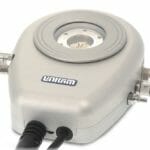Dilbert creator Scott Adams isn’t just a world-famous cartoonist, he’s also an enthusiastic entrepreneur and something of a guru for personal development. One of the key concepts he highlights is that very few individuals achieve success because of a single talent. Instead, he concentrates on how it’s our blend of skills that enables us to attain our goals, whether in business or hobbies. His ‘Talent Stack’ concept is a way to visualise this: Adams himself points out that he isn’t the world’s best artist or comedian but the skills he has, combined with some basic business acumen and a strong work ethic, were enough to make him extremely wealthy.
Adam’s number one tip for anyone striving for success is to continuously be adding to your Stack. This doesn’t just mean for narrow technical skills but works in a wider sense; you could learn a language, put time into practicing leadership skills or even try writing some jokes – it’s the combination of skills that really matters and a higher stack will naturally create its own synergy.
The Talent Stack is a powerful concept, especially when you consider it can be applied just as well to businesses as to people. Everyone who has ever worked in product development knows how difficult it can be to assemble a team that covers all the necessary skills, and there’s usually at least one element that needs to be brought in from outside the engineering department or even the company. You only have to look at the number of people in the industry who work on a contract basis to see how widespread this limitation is.
But if people can develop their Talent Stacks, why not businesses? When Lascar Electronics was founded in 1977, the first product range was a series of simple 7-segment LCDs. As the level of electronics design skill grew, more sophisticated functions were added, including recording the data being displayed. This required coding skills, which were then put to use in a range of dedicated data loggers. In fact, in the early 2000s Lascar became the first company in the world to develop and sell USB data loggers. Simultaneously, the display products had grown to include integrated touch-screen graphical interfaces with a software package that replaced bespoke coding with a desktop design suite.
The business skills were growing too, with an increase in direct sales and distribution and the opening of offices in the United States and Hong Kong. Pretty soon the company was managing a global supply and distribution chain that would be the envy of many far larger companies.
Of course technology doesn’t stand still and soon Lascar was developing WiFi-connected products and their own EasyLog Cloud system to go with them. Web interfaces need a clear and intuitive user interface, so GUI design was brought in-house and soon afterwards App coding. In fact, for a medium-sized company of around 100 people Lascar has a Talent Stack that is probably unique. As well as developing their own products, Lascar allow other businesses to tap into their success through a custom engineering and supply service that is genuinely turn-key from concept to delivery. Scott Adams would be proud.








